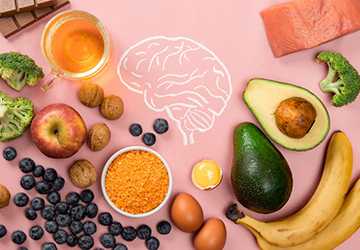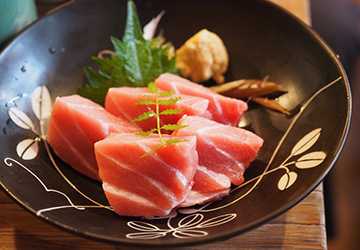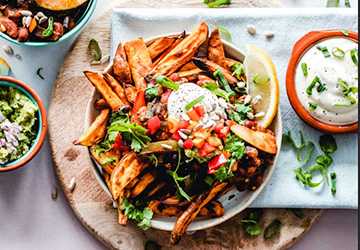How to Manage Blood Pressure Without Medication
High blood pressure is a common health problem affecting millions of people worldwide. It has been nicknamed the "silent killer" because of its ability to cause silent and often undetected damage to the cardiovascular system over several years. If left untreated, high blood pressure can lead to serious health complications such as heart disease, stroke, and kidney damage.
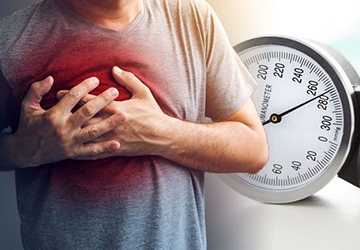
Fortunately, there are effective ways to control blood pressure beyond medication alone. Incorporating changes into your daily life and implementing healthy practices is crucial to maintaining optimal blood pressure. This article explores six valuable tips to help you monitor your blood pressure naturally.
Eat a Heart-Healthy Diet
The meals you eat have a significant impact on your blood pressure. You can effectively lower and control your blood pressure by making small, conscious changes to your food choices. Here are some nutritional tips to consider:
Limit Sodium Intake
Too much sodium can cause fluid retention and increase blood pressure. It is recommended to keep your daily sodium intake to less than 2,300 milligrams, about one teaspoon. Be careful when consuming processed and catered foods, as they often contain high salt levels, which can harm your blood pressure.
Increase Potassium
Potassium-rich foods like bananas, oranges, and sweet potatoes are essential to counteract the effects of too much sodium. Potassium actively helps your body eliminate excess sodium, which helps lower blood pressure and promotes overall cardiovascular health.
Adopt the DASH Nutrition Plan
The Dietary Approaches to Control Hypertension (DASH) nutrition plan emphasizes the intake of fresh produce, whole grains, lean protein sources, and low-fat dairy products. Following the DASH diet plan has significantly reduced high blood pressure levels.
Limit Alcohol and Caffeine
Excessive consumption of alcoholic beverages and substances containing caffeine can increase blood pressure. Consuming these drinks in moderation is recommended for better blood pressure control.
Control Portion Sizes
Control portion sizes to avoid overindulgence, often leading to weight gain and increased blood pressure. By managing your portion sizes, you can maintain healthier blood pressure.
Maintain Optimal Weight
Being overweight significantly increases the likelihood of developing high blood pressure. Losing even a few pounds can significantly impact blood pressure readings. Being overweight requires your heart to work harder to pump blood, which increases pressure on your arteries.
Start with small, achievable goals and aim for a healthy body mass index (BMI). Successful weight management depends on a nutritious diet and regular exercise.
Combined With Daily Exercise

Regular physical activity is a highly effective strategy for controlling and lowering blood pressure. This approach strengthens the heart, optimizes blood flow throughout the body, and reduces stress on artery walls. Aim for at least 150 minutes of moderate-intensity exercise or 75 minutes of vigorous-intensity exercise each week.
To effectively control blood pressure, you should engage in aerobic exercise such as brisk walking, swimming, cycling, or dancing. Additionally, incorporating strength training into your exercise program proves beneficial as it promotes muscle building, increases calorie burn, and contributes to successful weight management.
Face the Pressure
Stress can have a significant impact on your blood pressure. When you're stressed, your body releases hormones that cause a temporary increase in blood pressure. Ongoing stress can lead to long-term high blood pressure. Stress management is vital to overall health and blood pressure control.
There are various stress-reducing techniques you can incorporate into your daily life:
Practice conscious deep breathing: Use breathing techniques to calm your body's response to stress. Try breathing slowly and consciously through your nose, holding your breath briefly, and then exhaling gently through your mouth.
Meditation and yoga: Participating in these activities can promote calmness and calmness, ultimately lowering stress levels and helping to lower blood pressure.
Engage in relaxing activities: Discover a fun hobby or activity that brings you joy, whether reading, gardening or spending quality time with loved ones. Engaging in activities you enjoy can be a great way to relieve stress.
Get enough sleep: To manage stress effectively, you value a good night's sleep. Aim to get 7-9 hours of uninterrupted sleep each night.
Time management: Organize and prioritize daily tasks to relieve the stress of busy schedules.
Reduce Alcohol Consumption and Quit Smoking
Excessive drinking and smoking are two habits that can seriously affect blood pressure. Reducing or giving up these habits can significantly improve your blood pressure readings.
Alcohol
Drink alcohol in moderation. Women are advised to limit their alcohol intake to one drink per day, while men are advised to limit their alcohol intake to two drinks per day. Excessive consumption can cause blood pressure to rise.
Smokes
Smoking raises blood pressure, which damages blood vessels and increases the risk of heart disease. Get help and take advantage of the resources available to support your smoking cessation journey.
Monitor Your Blood Pressure Regularly
Regular blood pressure checks are essential to treat high blood pressure effectively. You can continuously monitor your blood pressure with a reliable home monitor. Understanding your measurements and recognizing patterns will help you and your doctor make informed decisions about your treatment plan.
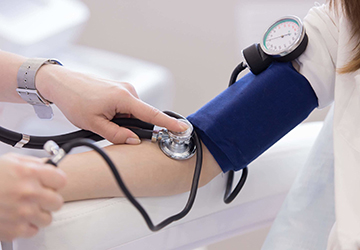
Here are a series of suggestions for monitoring blood pressure at home:
• Choose a certified home blood pressure monitoring device. Please consult your doctor for advice.
• Measure blood pressure simultaneously and under similar conditions every day.
• Avoid caffeine, exercise and tobacco at least 30 minutes before starting the measurement.
• Before taking your blood pressure, sit still for five minutes. Sit properly with your back supported, feet flat on the floor, and arms at heart level.
• Record your blood pressure readings and share them with your doctor during regular checkups.
Conclusion
It's possible to control blood pressure without medications through simple, effective lifestyle changes. Eating a heart-healthy diet, maintaining a healthy weight, exercising regularly, managing stress, and avoiding smoking and excessive alcohol consumption can significantly reduce blood pressure and related health risks.
Remember, you must consult your doctor before making significant lifestyle changes, especially if you have an underlying medical condition. They can provide personalized support and encouragement based on your specific needs.
